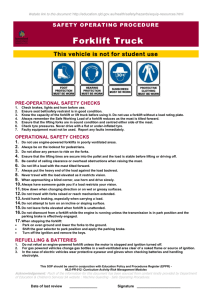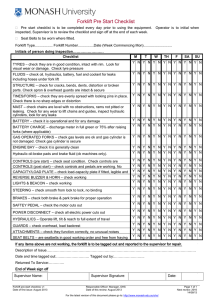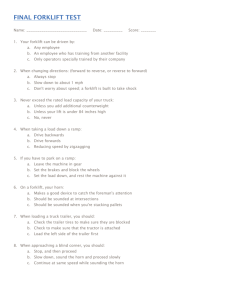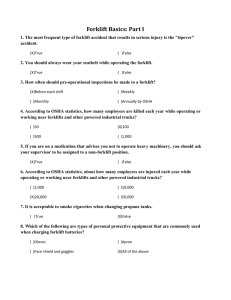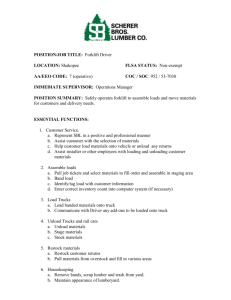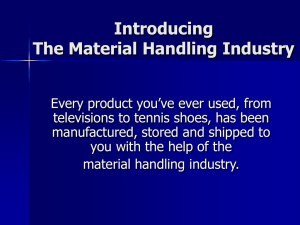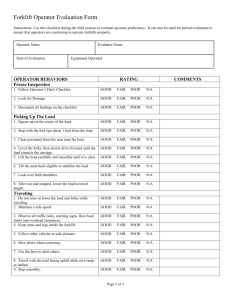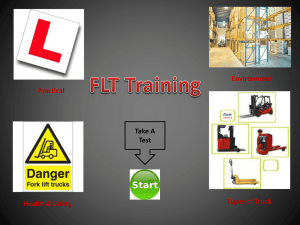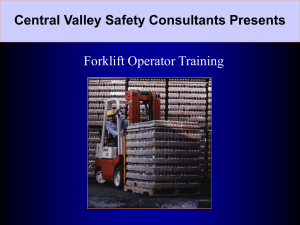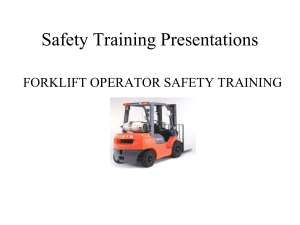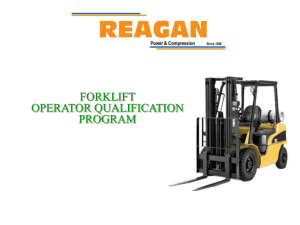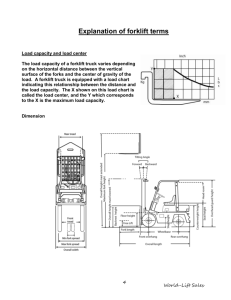Forklift Truck Safe Work Procedure - Safety Checklist
advertisement
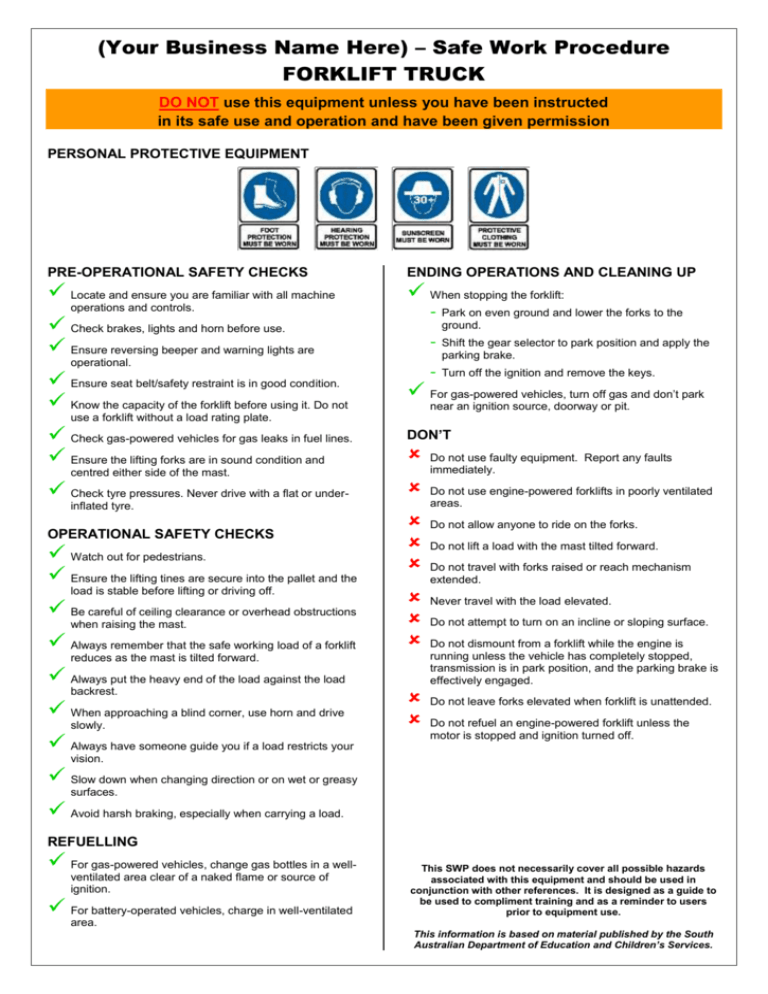
(Your Business Name Here) – Safe Work Procedure FORKLIFT TRUCK DO NOT use this equipment unless you have been instructed in its safe use and operation and have been given permission PERSONAL PROTECTIVE EQUIPMENT PRE-OPERATIONAL SAFETY CHECKS ENDING OPERATIONS AND CLEANING UP Locate and ensure you are familiar with all machine When stopping the forklift: operations and controls. Check brakes, lights and horn before use. Ensure reversing beeper and warning lights are operational. Ensure seat belt/safety restraint is in good condition. Know the capacity of the forklift before using it. Do not - Park on even ground and lower the forks to the ground. - Shift the gear selector to park position and apply the parking brake. - Turn off the ignition and remove the keys. For gas-powered vehicles, turn off gas and don’t park near an ignition source, doorway or pit. use a forklift without a load rating plate. Check gas-powered vehicles for gas leaks in fuel lines. Ensure the lifting forks are in sound condition and centred either side of the mast. Check tyre pressures. Never drive with a flat or underinflated tyre. OPERATIONAL SAFETY CHECKS Watch out for pedestrians. Ensure the lifting tines are secure into the pallet and the load is stable before lifting or driving off. Be careful of ceiling clearance or overhead obstructions when raising the mast. Always remember that the safe working load of a forklift DON’T reduces as the mast is tilted forward. Always put the heavy end of the load against the load backrest. When approaching a blind corner, use horn and drive slowly. Always have someone guide you if a load restricts your Do not use faulty equipment. Report any faults immediately. Do not use engine-powered forklifts in poorly ventilated areas. Do not allow anyone to ride on the forks. Do not lift a load with the mast tilted forward. Do not travel with forks raised or reach mechanism extended. Never travel with the load elevated. Do not attempt to turn on an incline or sloping surface. Do not dismount from a forklift while the engine is running unless the vehicle has completely stopped, transmission is in park position, and the parking brake is effectively engaged. Do not leave forks elevated when forklift is unattended. Do not refuel an engine-powered forklift unless the motor is stopped and ignition turned off. vision. Slow down when changing direction or on wet or greasy surfaces. Avoid harsh braking, especially when carrying a load. REFUELLING For gas-powered vehicles, change gas bottles in a wellventilated area clear of a naked flame or source of ignition. For battery-operated vehicles, charge in well-ventilated This SWP does not necessarily cover all possible hazards associated with this equipment and should be used in conjunction with other references. It is designed as a guide to be used to compliment training and as a reminder to users prior to equipment use. area. This information is based on material published by the South Australian Department of Education and Children’s Services.
